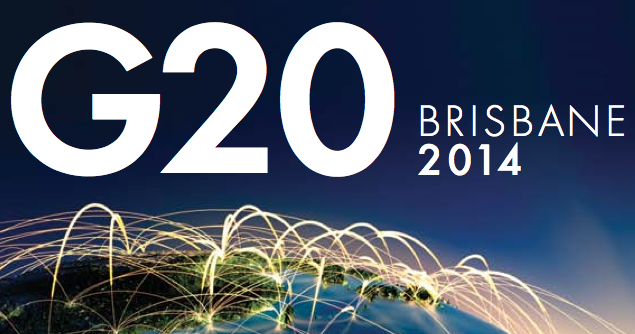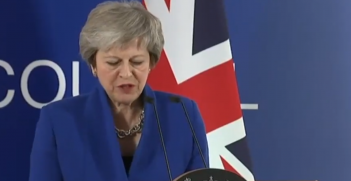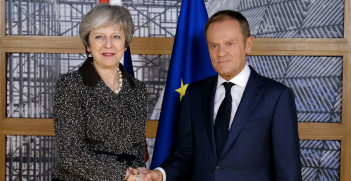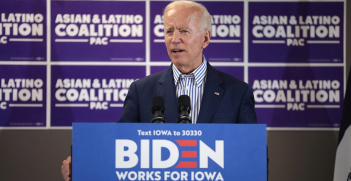G20: An Ongoing Revolution

Professor Andrew Cooper highlights the changing perceptions, positive progressions and past successes that add to the G20’s growing sense of legitimacy as it moves towards the Brisbane Summit.
It is widely heldthat the G20 is in serious transition. Certainly the forum has shape-shifted from its high profile role as a “fellowship of the lifeboat”, jolted into action by the shock of the Global Financial Crisis (GFC). During the G20’s initial stage and its successive Summits of Washington DC, London and Pittsburgh – it exhibited some characteristics of a hub forum, working to address the intense collective challenges presented by the GFC. In terms of instrumental achievements, the G20’s record in preventing a return to a 1930s-like Depression (an era in which an equivalent forum was noticeably absent) is impressive: the promotion of parallel albeit not equivalentnational initiatives on stimulus spending, concerted efforts to push for financial regulatory reform, and the maintenance of global trade flows and the avoidance of protectionist measures all showed promise.
Structural Challenges and Operational Losses
While the G20 gained recognition at the Pittsburgh Summit as the “premier forum for global economic cooperation,” it’s misleading to interpret its rise as on par with older concerts of power. From the outset, what stands out about the G20 is its diffuse and fragmented nature. Even from the beginning, there was no evidence of a command and control culture and it was marked by a number of innovative characteristics. One was the lack of “like-mindedness” most typical of the G7, whose membership shared a built-in commonality because of their shared democratic political systems. Also unique to the G20 was its emphasis on delegation, as featured by its relationship to international organisations – notably the International Monetary Fund (IMF) and the reconstituted Financial Stability Board (FSB). Both of these characteristics, together with the overall informal orientation of the forum, have meant that far from being “a club with a fixed way of doing things” the G20 has continually evolved with a bias toward networking.
To be sure, such operational looseness goes hand-in-hand with policy differentiation as a result of divergent national circumstances and interests. Yet the G20 exhibits some highly positive built-in features that mitigate against an accentuation of tensions. Against some more pessimistic predictions, the G20 has not aggravated historical splits on the basis of an overarching ideology or comprehensive sense of grievance. While there have been major policy debates about austerity versus consolidation, bank taxes and global imbalances, these issues have not been defined in strictly North-South lines.
In a similar problem-solving vein, the G20 has accentuated the position of highly skilled but traditionally low-profile officials. While the G20 is commonly seen as a Leader-centric forum, along with the passing of the GFC and a process of leadership change as key founders of the forum are slowly replaced, the summit process has taken on more of a technocratic culture. And given the complexity of the agenda and the salience of working groups, the logic of this evolution is understandable.
Perceptions of Legitimacy and Exclusivity
In terms of legitimacy, signs of a negative response to the G20’s role have eased. In conformity with the image of diffuseness, this backlash has been tempered by the pivotal role of countries without a traditional insider role in hub forums. South Korea helped this image considerably by acting as such an energetic and creative host during the November 2010 Seoul Summit, performing the role of a skilled diplomatic go-between on sensitive issues (above all, tensions over currency valuations) and pushing ahead with a number of development initiatives. In 2012, Mexico at Los Cabos not only put great emphasis on green growth but was crucial to the incorporation of the Business 20 as an important part of the G20 personality. And now, for the November 2014 Brisbane Summit, Australia has already signalled a focus on getting “back to basics” and that it will put the priority on deliverables, especially in terms of reinvigorating global growth.
Likewise, the G20 has also made significant strides in easing sensibilities of non-members, building links with a range of regional organisations (for example, the 3G group led by Singapore) that represent a wide variety of small countries. At the same time, the G20 repaired its relationship with the United Nations – a salient dynamic as the UN had been squeezed out of the forum’s original design. But since the confrontational atmosphere of the UN General Assembly’s Conference on the GFC in June 2009, open antagonism to the summit process has eased appreciably.
From Hub Forum to Global Focal Point
All of this underscores the bigger pattern at the core of the G20’s evolution: the explicit morphing from an image of a hub forum to that of a global focal point. Combined with the loss of immediacy that the GFC demanded and greater national differentiation, it is the de-centralised nature of G20 that jumps out most. Indeed, the most innovative component is its accentuated networking – not only at the state or technocratic level (exemplified at the 2013 Russian Summit by the role of foreign ministers with respect to the Syrian crisis), but the extensive links it holds with a myriad of international organisations. As noted, the IMF and the FSB are crucial components in this networkedapproach. But so are other important informal organisations– most notably summits such as G7/8 and BRICS. And despite the contrast between a more closely-aligned G7/8 (its like-mindedness accentuated by current Ukrainian tensions with Russia) and the more inclusive G20, instead a type of synergy now operates in summit dynamics, in which the G7/8 now acts to push deeper into issue-specific areas first targeted by the younger summit – like taxation and corruption.
Into The Future
How the details of this evolution will play out in the future continue to be highly contested. Still, what is clear is that the tendency by some observers to depict the G20 in an over- stated unidimensional manner has proved misleading. This tendency to exaggerate was exhibited by some analysts who chose to cast the G20 in 2008-9 as a new and problematic concert – and it is equally true of the current penchant to label the G20 as an immobilised “G-Zero” categorised by a vacuum of Western political power. The G20 isn’t and never has been a fixed project, but rather one capable of ongoing adjustment. While not constituting the steering committee of the world, it is nonetheless a nexus that goes much deeper into the contours of global governance than any short-term crisis committee. And that’s a very good thing.
Andrew F Cooper is professor at the Balsillie School of International Affairs and the Department of Political Science at the University of Waterloo.
This is an extract from G20: Words into Action Brisbane 2014, to be published by Faircount Media in association with the Australian Institute of International Affairs in October 2014.





